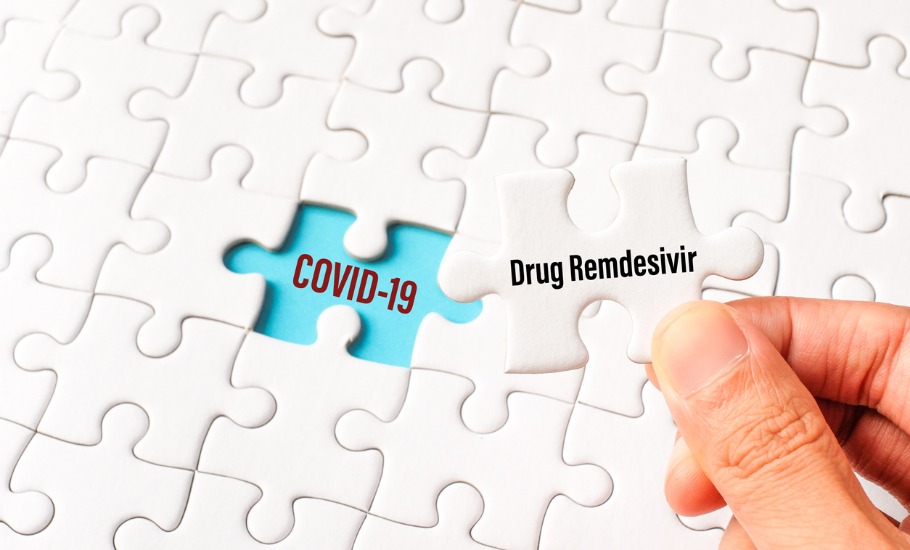
Antiviral drug Remdesivir fails first clinical trial in COVID-19 fight: Report
The first clinical trial of a selected antiviral medicine, which was considered one among the most promising approaches in the fight against COVID-19 pandemic, failed on Thursday (April 23).

The first clinical trial of a selected antiviral medicine, which was considered one among the most promising approaches in the fight against COVID-19 pandemic, failed on Thursday (April 23).
According to a draft summary, the failure was first reported via results released on the the World Health Organisation (WHO) website, a screenshot of which was also published by the Financial Times and Stat.
The intravenously administered drug, Remdesivir, was among the first drugs suggested as a treatment for the novel coronavirus.
Even as the WHO cleared the air around the deleted report, stating that it was published earlier due to an error and is undergoing peer review, Gilead Sciences, the manufacturer of the drug claimed how the deleted post had characterized the findings with the data showing a “potential benefit.”
Related news: Top vaccine doctor says Trump fired him for flagging wrong drug focus
“The Chinese trial involved 237 patients, with 158 on the drug and 79 in a control group and Remdesivir was stopped early in 18 patients because of side effects, “ the summary read.
However, the authors claim that the drug was “not associated with a difference in time to clinical improvement.”
Following a media report revealing the partial data of the trials conducted by the firm on serious coronavirus patients, the shares of Gilead Sciences shares surged on Friday (April 24).
After a month, 13.9 percent of the patients on Remdesivir had died compared to 12.8 percent of those in the control group, reported AFP.
Trials and research
While speaking to the AFP, a spokesman for the firm said, “We believe the post included inappropriate characterizations of the study and was terminated early due to low enrollment and was therefore not statistically meaningful.”
“As such, the study results are inconclusive, though trends in the data suggest a potential benefit for Remdesivir, particularly among patients treated early in disease,” the spokesman added.
Earlier, researchers claimed that COVID-19 patients in a clinical trial are responding quickly to Remdesivir, a finding which they said is “promising,” while also emphasising the need for more trials to test the effectiveness of the antiviral drug.
According to the researchers from the Houston Methodist Hospital in Texas, US, the trials criteria allows for the treatment of patients early in their clinical course, and in some cases when they may have otherwise been intubated.
“Early results are promising, and that is important right now. Much of what we are learning about COVID-19 management is centred around preventing quick deterioration,” said Katherine K. Perez, an infectious diseases pharmacist from Houston Methodist Hospital in the US.
Related news: Use of hydroxychloroquine shows no benefit for treating COVID-19 patients: Report
“Timing is everything. I can’t say for certain they would have been intubated otherwise, but it’s encouraging,” Perez said.
Originally developed to treat Ebola more than a decade ago, Remdesivir is a broad-spectrum antiviral drug, according to a study, published in the journal Nature earlier this year.
The Chinese study showed that Remdesivir could successfully block the novel coronavirus, SARS-CoV-2, from replicating in human cells.
Another research, published in the New England Journal of Medicine, chronicled the case of a COVID-19 positive man, who received Remdesivir at the recommendation of the US Centers for Disease Control and Prevention, and reportedly started improving within 24 hours.
“One of the most challenging things with COVID-19 is the way this virus makes copies of itself once it finds its way into the body,” the hospital said in a statement to the press.
Related news: New biosensor can quickly detect novel coronavirus, say Swiss scientists
“This is how COVID-19 can ultimately take over and send someone into respiratory distress and in need of intubation if not stopped early enough. Remdesivir has demonstrated a potent ability to inhibit this viral replication in human cells and is now being tried in clinical trials of patients with the SARS-CoV-2 virus,” it noted.
According to the clinicians, additional data from several ongoing randomised, controlled clinical trials, including the ones at Houston Methodist, will provide more definitive, evidence-based conclusions regarding the safety and efficacy of Remdesivir for treating COVID-19.
(With inputs from agencies)


